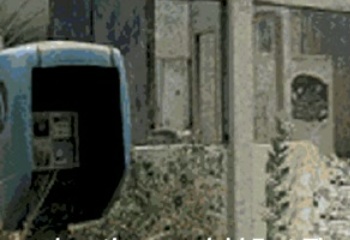Nine years after the arrival of the Internet in East Timor, the big difficulties faced by the country are not only related to physical access to technology, but also concern the necessary capability and access to resources that improve “digital citizen” participation. The country is limited in access to information and communication technologies (ICT) and also lacks the acquisition of competencies related to that field.
 East Timor has lived through long periods of occupation and has had to fight tragically for independence. The post referendum violence devastated social and communication infrastructures. When the country became the first new nation of the 21st century, it had almost no technological environment.
East Timor has lived through long periods of occupation and has had to fight tragically for independence. The post referendum violence devastated social and communication infrastructures. When the country became the first new nation of the 21st century, it had almost no technological environment.
In summary,
In 1997, before Timor's independence, .tp was registered as a top level domain by Connect-Ireland, in a gesture of support for exiled East Timorese leaders, Bishop Carlos Ximenes Belo and José Ramos-Horta, who had won the Nobel Peace Prize in 1996. Martin Maguire, project director at Connect, made the following statement in 1999 after the company suffered an attack, presumably by Indonesian hackers:
We noticed that the East Timor domain was available and assumed that the Indonesians would not wish to register it for political reasons. We made a suggestion to the East Timor Campaign and they were interested, so we set up the first virtual country on the Web as a platform for the East Timorese.
In a venture with Australian’s Telstra, reportedly
the first Internet connection was established on the 2nd February 2000 by UNDP.
This was nine years ago today. As the poorest country in Asia, with over 40% of its population illiterate and unemployed, and facing frequent political instability, the telecommunications’ sector still appears, however, to be a vital factor for rebuilding East Timor.
In 2003, East Timor’s Government established Timor Telecom (TT) as the provider for all communications services, in a venture with Portugal Telecom (which owns 50.1% of TT). Besides serving the whole population, through a monopoly that will last until 2017 at least, TT is also responsible for rebuilding data and voice infrastructures, as well as providing Internet connections.
Until 2004, the number of governmental computers was estimated at 1,000, though only 70 of them were connected to the Internet.
Internet usage is rare, slow and expensive, which means services such as e-commerce, and even blogs, simply do not to exist. In a country where people live on less than $2(US) a day, prices charged for 15 minutes of Internet surfing are as high as $0.50 (US). Even the National University of East Timor itself faces serious restrictions, as its 256 Kbps connection costs $3,000 (US) a month to serve around 40 computers. According to a user:
A ligação é muito lenta pelo que fica muito caro qualquer consulta na internet. [pt]

Luis Ramos, a former Portuguese IT teacher at the National University, stated back in 2007 [pt]:
Alguém me disse que o governo de Timor Leste tem no total 13Mbps de largura de banda para acesso ao backbone internacional, isto é, a ligação de todo o país à internet é de 13Mbps. Ora, destes 13Mbps: 6Mbps são reservados ao governo e os outros 7 para uso geral, isto é: toda a gente em Timor. Quanto é que se consegue ter numa casa Portuguesa? 4Mbps? Como tenho andado a ensinar aos meus alunos de redes, 13Mbps são pouco mais que 13300 kbps. Na universidade temos uma rede local com cerca de 40 computadores que partilham uma ligação de internet de 256kbps.
No bairro temos uma ligação à internet de 64kbps que é partilhada por todos os professores.
Ora vamos lá falar de Quality of Service (QoS). O QoS é um serviço que ajuda a garantir que todos os utilizadores tenham a largura de banda que subscreveram. Em Timor não deve haver isso. Lembram-se dos modems que se usavam em Portugal há uns anos? Esses modems tinham velocidades de 33kbps e depois de 56kbps, aqui temos um de 64kbps. Como não há QoS (suponho), esta ligação aqui em Timor é mais lenta que esses modems em Portugal. 13Mbps dá para 200 ligações de 64, e 5 eu já as conheço.
- gmail.com ao meio-dia: 30 segundos para poder por a password.
- google.com? 10 segundos para carregar!
- Gmail.com at noon: 30 seconds to insert my password.
- Google.com: 10 seconds to load!
On the one hand a big effort is necessary in order to rebuild the communications infrastructure, on the other hand, the income of Timor Telecom is known to be high, as Hilario Nolasco [tet], a Timorese Timor Telecom worker complains:
Hau mak kiik liu compara ho trabalhador tomak TT nian iha tinan 2007 no 2008, colega balun bolu hau putu, balun dehan hau labarik maibe ida nee la iha diferencia iha servicu laran, hau gosta servico iha TT tamba iha ambiente nebe diak excepto valorizacao ba hau nia servico quando compara ho rendimento empresa nian ………..iha exploracao nebe bot la halimar!.
The same blogger, on a Facebook comment on Tempo Semanal Vox Pop Videos [tet] where a woman answers the question “Timor Telecom, Good or Bad?”, stresses the need to balance points of view on Telecommunication's infrastructures when talking about rebuilding the country:
Ne'e Maluk Timor oan sira temke akompanha mos prosesu dezemvolvimento iha mos rai seluk para ita Timor Ne'e Lebele Ketingalan Imformasi…Labele Hare deit Parte ida maibe temke hare mos parte seluk….Obrigado…
Nevertheless, some mocking propaganda against TT's monopoly is on the way, such as the “Timor Telecom you're a joke” video posted on YouTube by user kmfw72, whose screen shots illustrate this piece.
Jeremy Wagstaff expresses his regret at the digital divide that developed in East Timor during the 2006's crisis. At that time, only one Timorese website had information about the uprising, the Suara Timor Lorosae (website that has been inactive until recently), formerly the prime news source in the country. There were also significant Timorese points of view stated during a special UN inquiry on the crisis. This report has been posted on a Yahoo group on East Timor studies.
I can find no East Timor site working out of East Timor that has any information about this uprising, the most important development in the country’s recent history. OK, so not many Timorese have access to the Internet but this is a vital link with the outside world, a chance for Timorese to convey what is going on to governments, exiled Timorese, interested readers and others. Now, in the midst of terrible violence and the humiliation of seeking outside military intervention, there is again no domestic media getting the story to the world’s most important medium.
Even though the number of Internet users in 2006 was estimated at just 1,200, the number of websites supported by Timorese citizens, in the Tetum language, has increased. Some examples to be highlighted are the Tetum version of Wikipedia, and some news websites such as Tempo Semanal and Kla'ak Semanal. After nine years since the first connection, as of the 2nd February 2009, there is only dial up analogue internet connection available and 285 Internet hosts.

In the next article of this series, you will meet Jen Hughes, founder of Suai Media Space – a social media project connecting the people of Suai with the world community, whose dream is: “For the voices of the youth of Suai to be heard all over the world”. The Australian documentary-maker will describe her experience in trying to bring technology to Suai, in the south of East Timor.







18 comments
systema no ekipametu nebee TT uja ne hanesan ekipamentu nebee uluk ema uja iha dinosaurus nia tempu. antigu liu iha mundu.
mais karun teb-tebes iha mundu,pois monopoli nebee mak maka’as tebtebes.
karik TT hanoin timor oan ema mesak beit deit, mais lae belum!!!!!!!!!!!!!!!
timor so sedauk bele harii kompanha ida boot hanesan nee maibe atu analisa deit bosokten sira nee timor oan bele hela.
hanesan realidade ida nebee ita hare’e mak depois TT halo ninia produtu foun ba ninia credit card husi $10 mai iha $5 mai iha $2 agora $1 ona ne,ida nee hanesan produtu foun ida nebee TT mak hetan nia benefisiu mais TT koment dehan hatu’un presu!!!!!!!!!!!!!
para povu ki’ik mos bele hetan komunikasaun.
hau lagosta TT ,triste bainhira TT iha Timor.
Dear Sara,
I am just wondering about your stats Feb 2009 that there is only dial up analogue connection. Is this true? I thought hotels provide ADSL and broadband. And that there are 258 hosts – what does ‘host’ mean here? Companies that provide the service? Just wondering where you sourced the two data from?
Thanks.
Dear Researcher,
I am so sorry for my delay in answering your relevant questions but I have been away for a while.
In February 2009 Timor Telecom was providing only dial up connections and I sourced the information from their website. Since September 2009 they provide broadband services: http://www.timortelecom.tp/eng/planos_26_uk.html
Hotels and other places have been providing broadband through the use of satellites which I believe that are out of the scope of the defined monopoly.
From CIA World Fact Book, “An Internet host is a computer connected directly to the Internet; normally an Internet Service Provider’s (ISP) computer is a host. Internet users may use either a hard-wired terminal, at an institution with a mainframe computer connected directly to the Internet, or may connect remotely by way of a modem via telephone line, cable, or satellite to the Internet Service Provider’s host computer. The number of hosts is one indicator of the extent of Internet connectivity.”
https://www.cia.gov/library/publications/the-world-factbook/geos/tt.html
Though I now see that in the CIA website the number of Internet Hosts presented for 2009 is 169, I sourced the number 285 from Índex Mundi website: http://www.indexmundi.com/timor-leste/internet_hosts.html
I hope this message finds you still on time for your work.
Best regards,
Sara
GOOD NEWS…GOOD NEWS…GOOD NEWS…
AFter a Long…….Long……Long wait.
The government finally decided to end the monopoly of Timor Telecom.
“The government of Timor-Leste has reached an agreement with Timor Telecom (TT) to end the monopoly held by the Portugal Telecom subsidiary on the telecoms sector, Macauhub reports. Under the terms of TT’s operating licence, which was awarded in 2002, the company was granted exclusivity in the market until 2017, but last year the government revealed plans to bring forward liberalisation and subsequently entered into negotiations with TT to end its monopoly earlier than planned. Meanwhile the report quotes minister for infrastructure Pedro Lay as saying that an auction for new telecommunications licences would be launched by the government ‘soon’.”
See Link here: http://www.telegeography.com/products/commsupdate/articles/2012/03/29/timor-telecoms-monopoly-set-to-end/index.html
Good news for Timor-Leste…I hope to see more competions and lower rate but faster phone and internet services soon.
Mike
http://www.timor-lesteonline.com
4/4/12